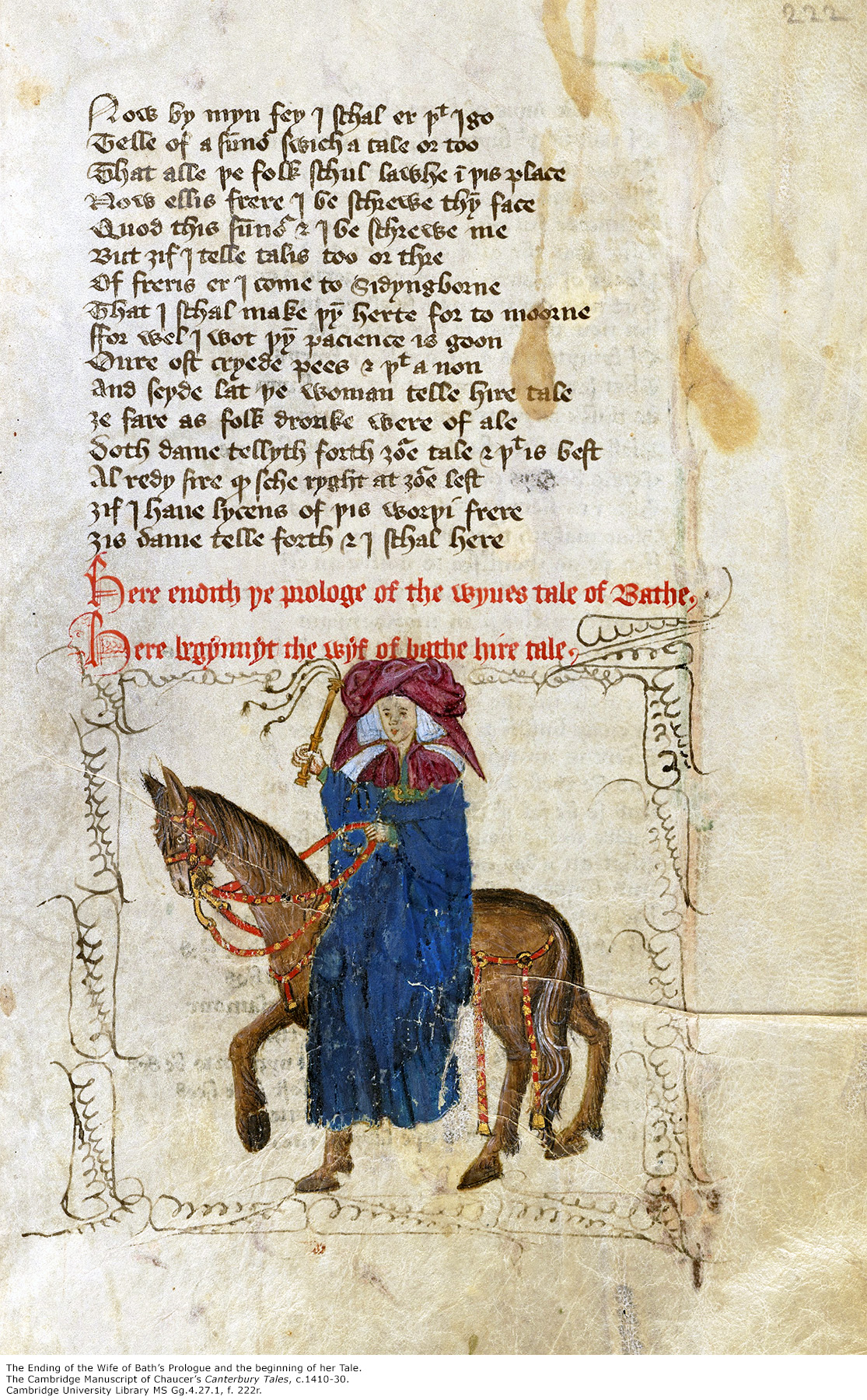The Wife of Bath's Tale

In Arthur's day, before the friars drove away the fairies, a lusty bachelor of the king's court raped a young maiden.
He is taken and condemned to die (such was the custom then) but the king, in deference to Queen Guenevere's pleas, allows the ladies to judge him.
They tell him he can save his life only if a year and a day later he can tell them what it is that women most desire.
He wanders long without finding the answer; he is about to return disconsolate when he comes upon an old and remarkably ugly woman. She says that if he swears to do whatever she will next ask him, she will tell him the answer.
He agrees and returns with the answer: women most desire to have sovereignty over their husbands.
Guenevere and her ladies are amazed; they grant him his life.
The old woman then makes her demand: that he marry her.
She will accept no less. On their wedding night; he turns away from her.
She asks him what is the matter. He answers that she is old and ugly and low born.
The old woman demonstrates to him that none of these matter -- especially noble birth, since true gentilesse depends on deeds rather than birth.
She offers him the choice: he can have her old and ugly and faithful or young, beautiful, and possibly unchaste.
He tells her to choose; he grants her the sovereignty.
When he does so she turns into a beautiful maiden, and they live thereafter in perfect joy.
- Geoffrey Chaucer
What is the Effect of Love?
This is the effect of love:
that the true lover can not be corrupted by avarice; love makes an ugly and rude person shine with all beauty, knows how to endow with nobility even one of humble birth, can even lend humility to the proud; he who loves is accustomed humbly to serve others.
Oh, what a marvelous thing is love, which makes a man shine with so many virtues and which teaches everyone to abound in good customs. . . .
- Andreas Capellanus







